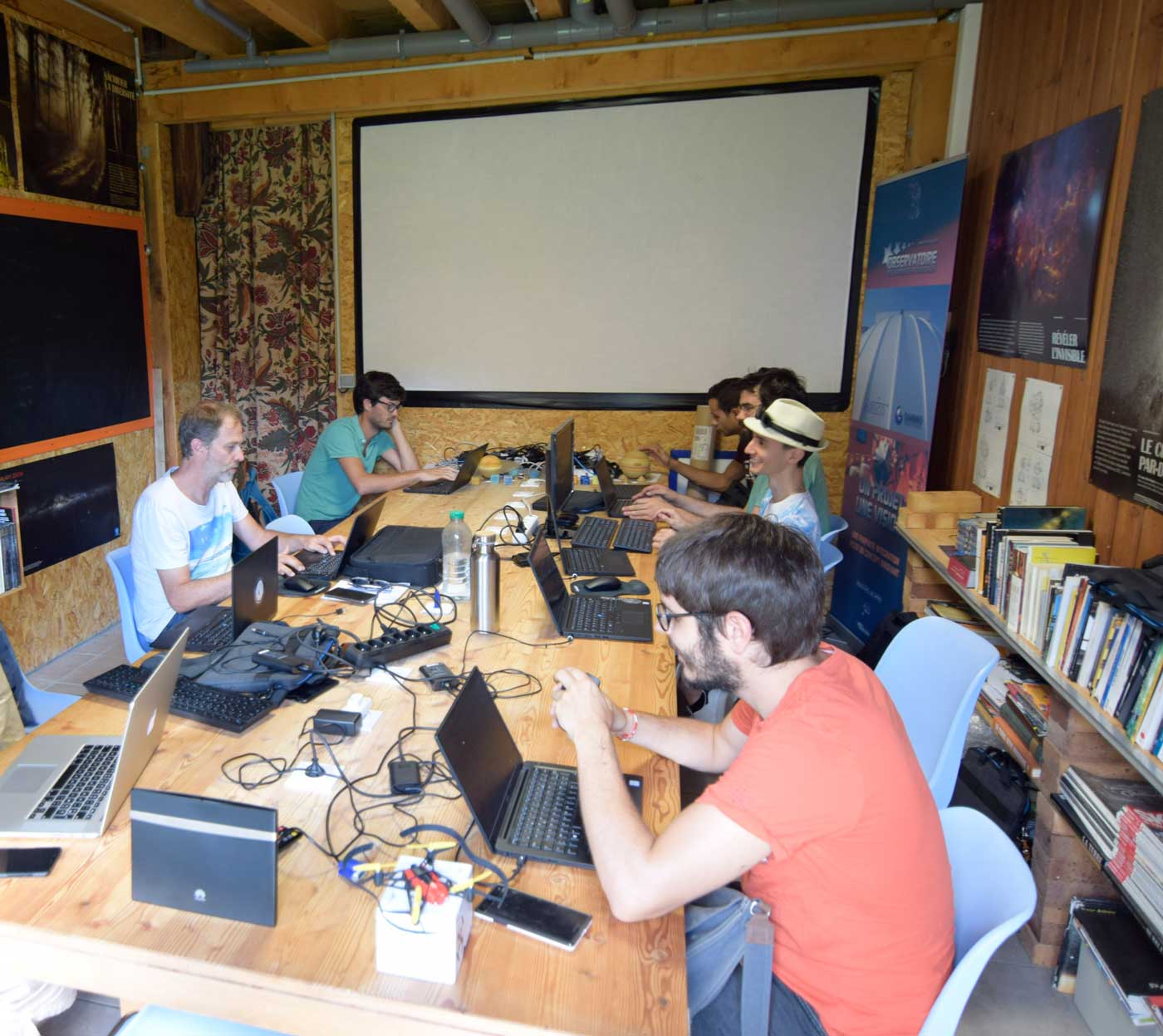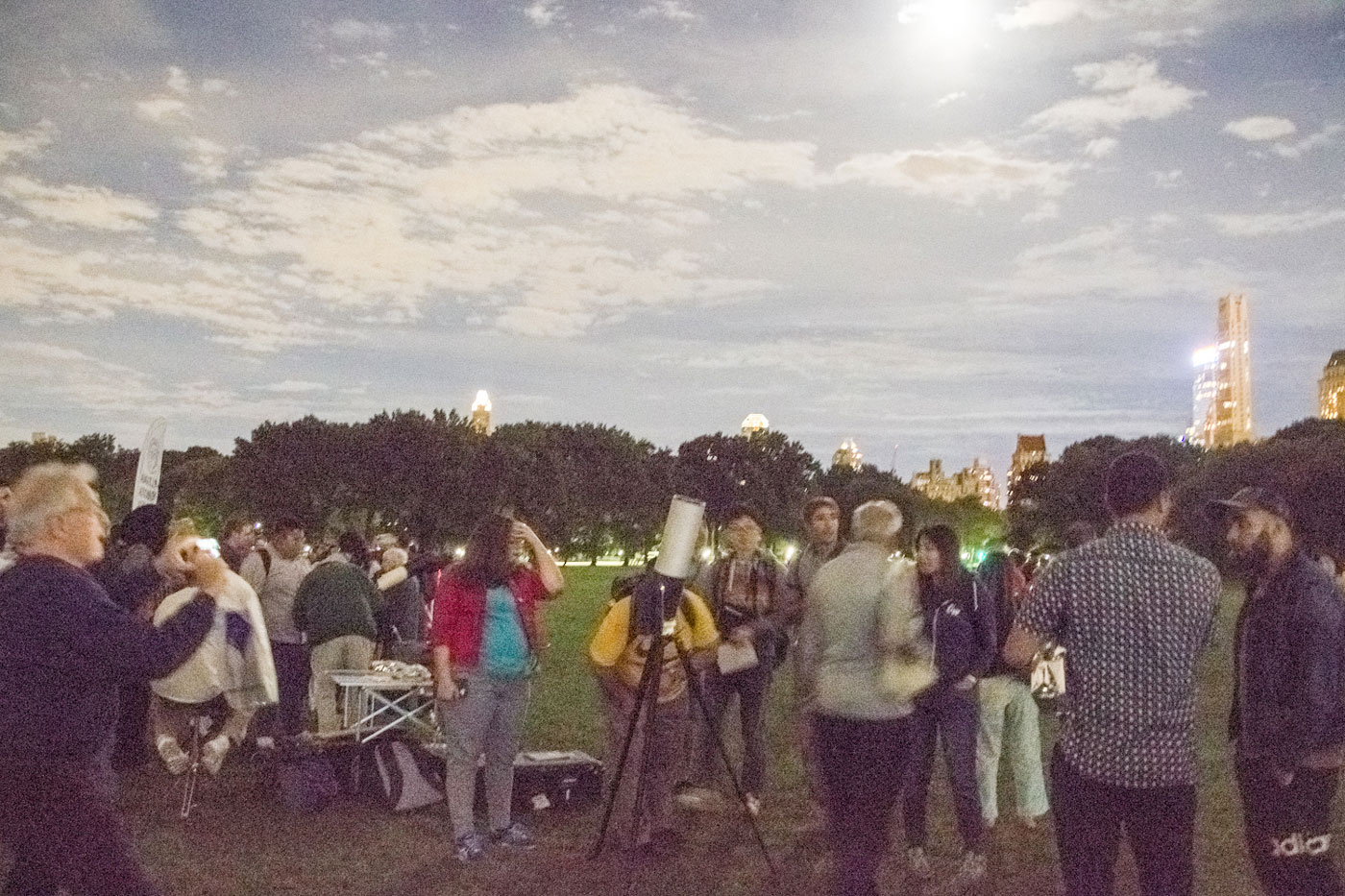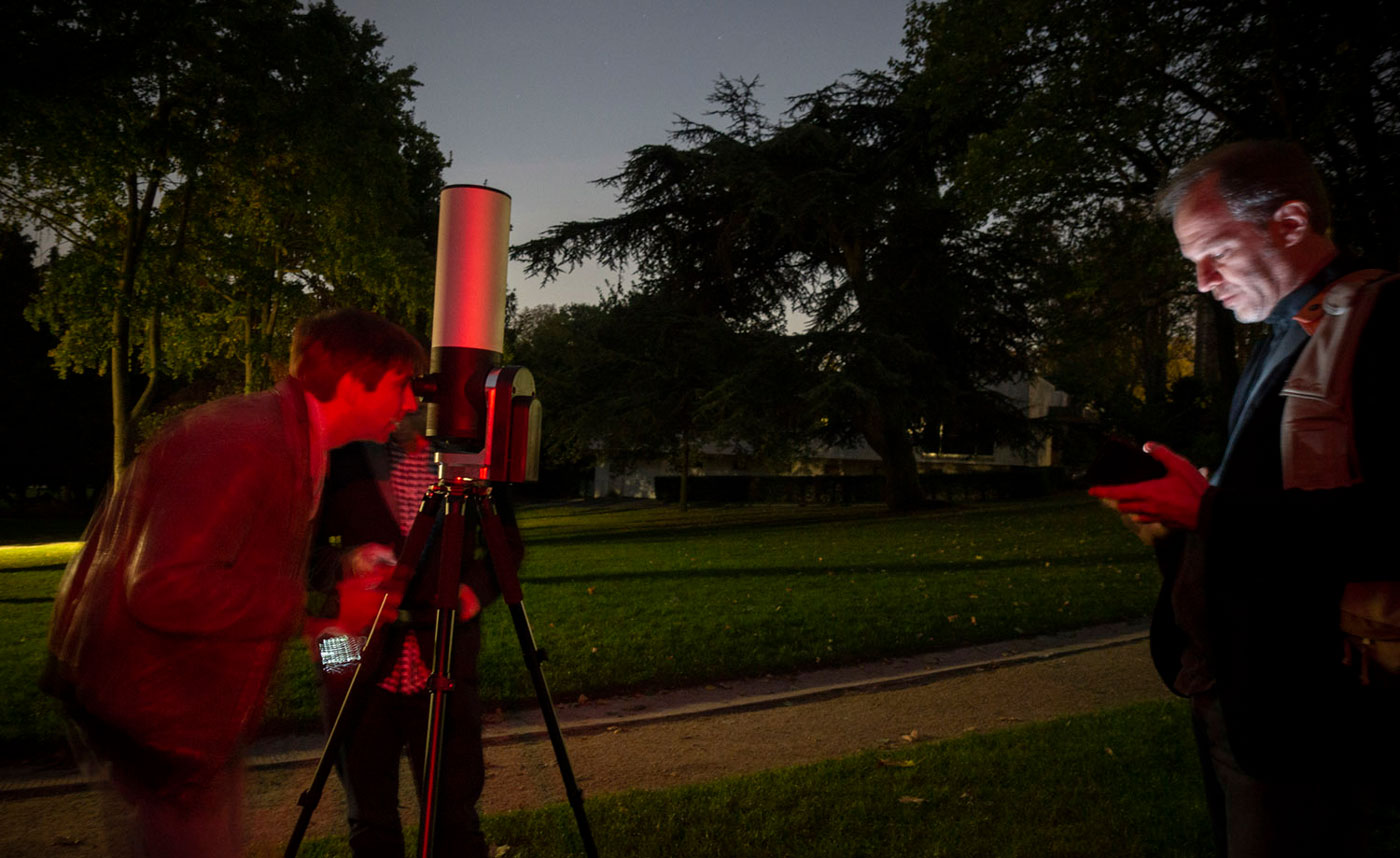Last year, the SETI Institute announced its exciting new partnership with Unistellar, a start-up developing the revolutionary new eVscope.

Last year, the SETI Institute announced its exciting new partnership with Unistellar, a start-up developing the revolutionary new eVscope whose chief scientific officer is our very own Senior Planetary Astronomer Franck Marchis. Here’s an update on this thrilling project as it reaches a key point in its development.
Unistellar’s eVscope is a first-of-its-kind compact telescope that provides crisp and detailed views of galaxies, nebulae, and comets thanks to its light-amplification technology. Being connected and extremely easy to use, the eVscope will do far more than capture sharp images: it will also create the world’s first global network of citizen astronomers, all of whom will have the opportunity to participate in scientific observation campaigns coordinated by the SETI Institute. To get an idea of the scientific potential of an eVscope, check out this article: Capturing an Occultation and a Snapshot of Pluto’s Atmosphere.
The eVscope’s unparalleled ability to observe asteroids and directly image potentially hazardous ones along with asteroid occultations was presented at several scientific conferences in 2018 by the SETI Institute/Unistellar team. Franck Marchis showed the first occultations of main-belt asteroids, as well as images of faint Near Earth Asteroids taken with an early prototype of the eVscope to his colleagues at the IAU General Assembly in Vienna, Austria, the IAC congress in Bremen, Germany, and the DPS meeting in Knoxville, TN. The response was tremendous—and while that was happening, his group was also working hard with his colleagues at Unistellar to move the project forward along a strict and ambitious timeline.
A year ago, Unistellar launched a record-breaking crowdfunding campaign that raised more than $2.2M and secured the global support of 2,100 backers. Since then, Unistellar has made tremendous progress designing and building the eVscope, moving along its industrial roadmap, so that the company is now in line for first eVscope deliveries in Q2 2019.
In August 2018, the entire Unistellar team headed to l’Observatoire des Baronnies Provençales (in the French Alps), a gorgeous remote location in the South of France that’s ideal for observing. There, during nights of intensive testing, they reached a key milestone: the first eVscope industrial prototype began its stargazing career by achieving its first light. For those not familiar with the term “first light,” it’s how astronomers describe their first observations using a new telescope.

With that done, the team has been making steady progress, testing, correcting, and optimizing different subsystems on its industrial prototypes.
These extensive tests didn’t happen only internally at Unistellar’s headquarters; they also took the form of demonstrations, from New York to Paris, with a special appearance in the heart of Wales.
First stop: New York City. The friendly people from the Amateur Astronomers Association (AAA) of New York invited Franck Marchis to their fall Starfest, to give a well-received talk on the democratization of astronomy with the eVscope and its potential to revolutionize citizen science.
Arnaud, Unistellar’s chief technology officer, flew in from Marseille for this special occasion to give the premiere showing of the industrialized version of the eVscope. The goal was to demonstrate this version of the eVscope to New Yorkers in Central Park. Unfortunately, the weather was not great and most amateur astronomers who had brought their rigs attempted several times without success to aim and re-aim at any open patch of sky. Fortunately, the Unistellar’s eVscope was fast enough to point and observe a deep sky object, the Ring Nebula, with a mere twenty-eight seconds of stacked images. As you can see here, word of mouth quickly drove curious astronomers to the eVscope, eager to observe something so beautiful and so remote from Central Park.

A few weeks later, the team gathered in Paris to show the eVscope to an expert reporter from Ciel & Espace, a major French astronomy magazine. As was the case in New York, the reporter met the Unistellar team downtown, in a public park. The sky that night, while slightly better than in New York, was full of cirrus clouds. Again, the demonstration went really well with multiple globular clusters and nebulae visible in a short amount of time. (If you read French and are a Ciel & Espace subscriber, you can check out the reporter’s article here).
For instance, at the end of the demonstration, we tried to observe the Little Dumbbell Nebula (M76) but realized that to do this we needed to move the telescope a few meters away to point between two nearby trees, with almost no stars visible in the vicinity. In less than two minutes, the eVscope identified the field of view and pointed to the right target, distinguishing the colors and shape of this nebula, which is 2,544 light years away.

Between those two demos, the eVscope traveled again, this time to the countryside, deep into the heart of Wales and the Elan Valley’s dark sky reserve. Unistellar was invited there by the Gadget Show, a TV program targeted at technology enthusiasts that’s broadcasted on Channel 5 (UK).
For this dark sky special edition, they brought Mark Thompson on stage, one of the most renowned astronomy experts in the UK, to talk about the latest innovations in astronomy, including the eVscope. You can check this short excerpt to view what they called their “officially mind-blowing” observation of the Dumbbell Nebula through its eyepiece!
If you want to be part of this project, now’s the time. As it finishes industrial design and starts to build tooling for mass-production, Unistellar is transforming itself into an industrial company.
Their crowdfunding campaign, which was temporarily continued on Indiegogo, will close for good on December the 5th. To celebrate that step forward, Unistellar is offering a special discounted price of $1,749, that is $750 below the estimated retail price. If you or your friends want to be one of the first to get an eVscope—while saving money and supporting Unistellar’s development—you have until December 5th to do so.
And if you've always wanted to know what an eVscope looks like... stay tuned to SETI Institute’s social media accounts. Soon, you’ll have the opportunity to take a look at an eVscope mock-up at SETI Institute’s headquarters building in Mountain View, California!





